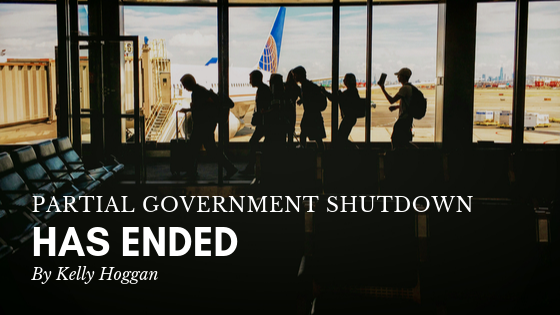This article was originally published by Kelly Hoggan on H4-Solutions.com.
_
U.S. President Donald Trump yesterday announced an end to the partial government shutdown that had seen TSA and other federal civil service employees not receive pay for the last 36 days. Ostensibly only good for the next 3 weeks – while the President and Congress negotiate to fund for construction of a southern border wall — the deal should see TSA and other Department of Homeland Security personnel, as well as FAA air traffic controllers, quickly paid all back pay owed them.
Some news reports have speculated that increasing sick calls and absenteeism among TSA uniformed officers had begun to severely stress the ability of TSA to provide complete security coverage at several the nation’s largest and busiest airports. Security line wait times had also started to climb precipitously, with Atlanta’s Hartsfield-Jackson International Airport experiencing 90-plus minute line times during peak travel hours on its busiest days. The same phenomenon had also appeared at other large airports as well.
Add in that the FAA had begun reporting increased absenteeism among its air traffic controller group – leading to a temporary halt yesterday of all flights into and out of New York’s LaGuardia Airport – and it was clear something had to be done.
A factor contributing to the desire to get TSA, FAA, DHS and other agencies’ funding flowing again may have been recent statements issued by the union representing air traffic controllers as well as one of the largest airline pilots unions. Both groups expressed severe concerns over flight safety issues, as the air traffic control system was coming under increasing stress due to escalating controller absenteeism rates.
Long wait times for passengers to make it through airport security checkpoints and the possibility of flight delays or even cancellations due to an inability to safely get planes into the air and back on the ground? That would have been a national and international air travel nightmare of significant proportions.
At present, with the at-least-temporary deal to reopen the entire federal government, the security delay problem seems to have been alleviated. Hopefully, a longer-term agreement will be reached soon that funds the TSA’s vital security mission and ensures the presence of its uniformed officer corps at the nation’s many airports and airfields.
It remains to be seen what will happen if no deal for the border wall is reached three weeks from now. What’s for sure is that if one isn’t reached, TSA and other federal employees responsible for the safety and security of our nation shouldn’t be put in a must-work-for-no-pay situation ever again. Using such employees as political pawns in a fight between the Executive and Legislative branches is completely unacceptable.


